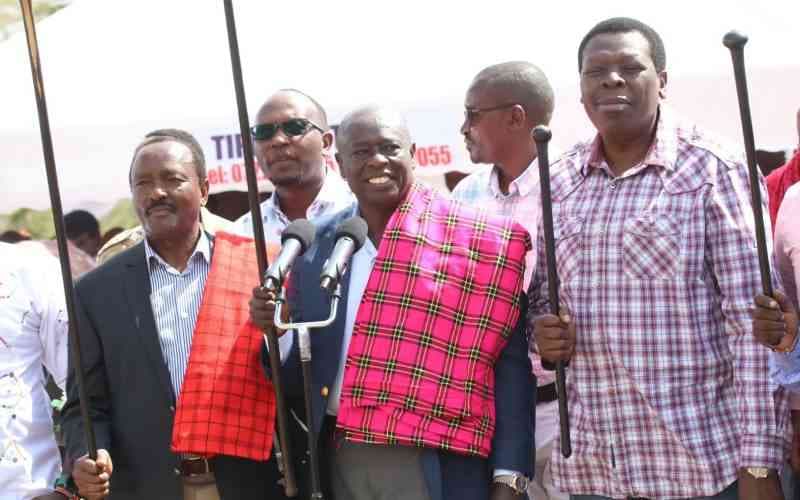We're loading the full news article for you. This includes the article content, images, author information, and related articles.
Former Deputy President Rigathi Gachagua has issued a stern warning against the illegal seizure of ancestral land belonging to the Maa community, terming it a direct assault on their identity and cultural heritage.

Former Deputy President Rigathi Gachagua on Friday, October 3, 2025, condemned the illegal seizure of ancestral land belonging to the Maa community, describing it as a direct assault on their identity and cultural heritage. Speaking via his official X account, Gachagua underscored the profound significance of land to the Maa people, stating it is “more than just property; it is the heart of their identity, livelihood, cultural traditions, and spiritual beliefs. It is simply an indomitable parental blessing!”
Gachagua, who served as Deputy President from September 2022 until his impeachment in October 2024, has recently announced his intention to run for president in the 2027 Kenyan general election. His remarks come amidst long-standing issues of land dispossession and disputes affecting the Maa community and other indigenous groups across Kenya.
Land in Kenya holds immense cultural and economic significance, often representing heritage and a legacy passed down through generations. However, land succession and inheritance can be complex, leading to disputes. The Maa community, primarily pastoralists, has historically faced challenges related to land ownership, with significant portions of their ancestral lands being converted from communal holdings to individual parcels, sometimes leading to dispossession.
The issue of land grabbing, defined as the illegal acquisition or occupation of land without proper legal title, is widespread in Kenya. It is often fueled by weak land governance systems, corruption within government agencies, high demand for land, unclear ownership, and political influence. These factors disproportionately affect vulnerable communities, including the Maa.
Kenya's legal framework for land ownership includes freehold, leasehold, and customary ownership. Customary land is owned by communities and governed by traditional practices. The 2010 Constitution and the Community Land Act of 2016 were significant steps towards recognizing and securing customary land rights and addressing historical injustices. However, implementation has been slow, with only a few communities formally registering their lands.
The Law of Succession Act also governs the distribution of deceased persons' estates, including land, aiming for equitable and inclusive inheritance. Despite these legal provisions, traditional practices in some communities, including the Maa, have historically excluded women from land inheritance, though efforts are being made to challenge these norms.
Analysts suggest that Gachagua's strong stance could influence public debate and policy execution regarding land matters. Stakeholders are urging clarity on timelines, costs, and safeguards related to land reforms. The ongoing land disputes pose risks of social instability and conflict, particularly in areas where displaced communities seek to reclaim their land.
In a related development, the government recently addressed allegations of land grabbing in Kibiko, Kajiado County, stating that the claims were unfounded and that actions taken by the Ministry of Lands adhered to court orders. This particular land, covering 1,085.5 hectares (2,682 acres), has been subject to disputes for over a decade.
The coming months will likely see increased scrutiny on land policies and their implementation, especially concerning community land rights. The political implications of land issues, particularly with the upcoming 2027 general election, will be a key area to monitor. Gachagua has previously pledged to return 1,300 acres of land to the residents of Kekonyokie if elected president, claiming it was forcefully taken by government officials.
Keep the conversation in one place—threads here stay linked to the story and in the forums.
Sign in to start a discussion
Start a conversation about this story and keep it linked here.
Other hot threads
E-sports and Gaming Community in Kenya
Active 9 months ago
The Role of Technology in Modern Agriculture (AgriTech)
Active 9 months ago
Popular Recreational Activities Across Counties
Active 9 months ago
Investing in Youth Sports Development Programs
Active 9 months ago
Key figures and persons of interest featured in this article